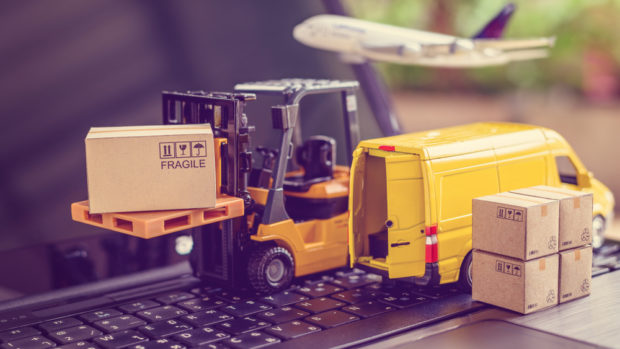
Retailers face a host of challenges to manage supply chains and ensure timely delivery. The demand for faster delivery times, coupled with the need for accuracy, puts immense pressure on retailers to streamline their logistics. Customers now expect real-time updates and precise delivery windows, which traditional systems often struggle to provide. Additionally, the growing complexity of global supply chains, influenced by factors such as fluctuating fuel prices, regulatory changes and environmental concerns, further complicates delivery processes.
AI-driven solutions are promising to alleviate these issues. For instance, AI algorithms can optimise delivery routes by analysing traffic patterns, weather conditions and other variables in real-time. This not only reduces delivery times but also minimises fuel consumption, contributing to both cost savings and sustainability goals.
Dynamic dispatching is yet another AI-driven innovation that significantly improves delivery efficiency. By dynamically assigning delivery tasks to drivers based on their location, delivery urgency and other factors, retailers can get the best return on their delivery fleets. This approach reduces idle time and ensures that deliveries are made as quickly as possible, further improving customer satisfaction.
AI in post-purchase processes
Post-purchase processes, including returns management, customer service and feedback analysis, are critical to maintaining customer loyalty and satisfaction. However, these processes are often labour-intensive and can be prone to errors, leading to customer dissatisfaction and increased operational costs.
AI technologies are transforming these post-purchase activities by automating and optimising key tasks. For example, AI can streamline returns management by analysing return patterns and predicting return volumes. This allows retailers to better manage their inventory and logistics, reducing the costs associated with returns. Moreover, AI can help optimise return logistics, ensuring items are processed and restocked quickly, minimising the impact on stock levels.
Customer service automation is another area where AI is making a significant impact. AI-powered chatbots and virtual assistants can handle a wide range of post-purchase inquiries, from tracking orders to processing returns. These AI tools provide quick resolutions to common issues, freeing up human agents to focus on more complex customer service tasks. This not only improves efficiency but also enhances the customer experience by providing faster and more consistent service.
Feedback analysis is a critical component of post-purchase processes, as it provides valuable insights into customer satisfaction and areas for improvement. AI can analyse vast amounts of customer feedback, identifying trends and common issues that might be missed by human analysts. By addressing these issues proactively, retailers can improve their products and services, leading to higher customer satisfaction and loyalty.
Real-world applications and benefits
The benefits of AI in retail delivery and post-purchase processes are not just theoretical. Many retailers are already reaping the rewards of AI-driven innovations. For instance, AI-powered route optimisation has been shown to reduce delivery times by up to 25 per cent, while dynamic dispatching can increase delivery efficiency by as much as 20 per cent. These improvements translate into significant cost savings for retailers who are trading on very low margins or even an operating loss, as well as improved service for customers.
In post-purchase processes, AI has helped some retailers reduce return processing times by up to 30 per cent, leading to faster restocking and less impact on inventory levels. Customer service automation has also proven effective, with AI chatbots handling up to 70 per cent of routine inquiries, reducing the workload on human agents and improving response times.
Moreover, AI-driven feedback analysis has enabled retailers to identify and address customer issues more quickly, leading to higher customer satisfaction and loyalty. For example, by analysing customer reviews and social media mentions, retailers can identify common product issues and make necessary improvements before they become widespread problems.
The Future of AI in Retail
Looking forward, the role of AI in retail delivery and post-purchase processes is set to expand even further. As AI technologies continue to evolve, they will become even more integral to retail operations. For instance, autonomous delivery vehicles and drones, powered by AI, have the potential to revolutionise last-mile delivery, making it faster and more efficient than ever before.
In post-purchase processes, AI is likely to become even more sophisticated, with predictive maintenance and personalised follow-up communications becoming standard practice. These innovations will not only improve customer satisfaction but also help retailers build stronger relationships with their customers, driving long-term loyalty.
However, the adoption of AI in retail is not without challenges. Concerns about data privacy, the quality of AI tools, and the impact on the workforce must be carefully managed. Retailers will need to strike a balance between leveraging AI to improve efficiency and maintaining control over their operations. This will require a thoughtful approach to AI implementation, with a focus on training and continuous improvement.
AI is playing a pivotal role in transforming retail delivery and post-purchase processes. By addressing the challenges of complex supply chains and customer expectations, AI-driven solutions are enhancing efficiency, reducing costs, and improving customer satisfaction. As AI technologies continue to advance, their impact on the retail sector will only grow, offering retailers new opportunities to innovate and stay competitive in a rapidly changing market.








Share